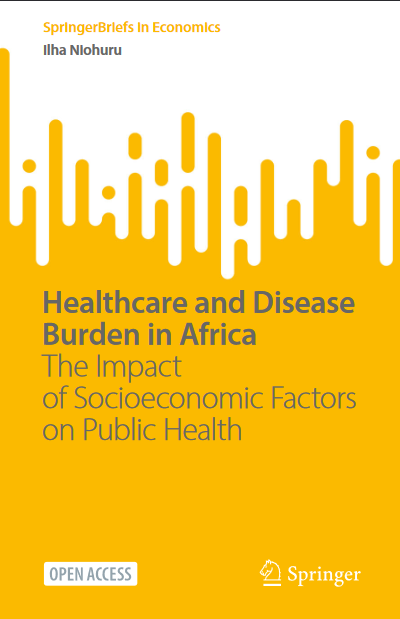موضوعات
آموزش و پرورش
ادبیات و زبان
پزشکی، دندانپزشکی و داروسازی
تاریخ و جغرافیا
داستان و رمان
دیگر
دین و فلسفه
روانشناسی
ریاضیات و آمار
سلامتی، تناسب اندام و رژیم غذایی
شیمی و پلیمر
علوم اجتماعی و حقوق
علوم زیستی و بیوتکنولوژی
فیزیک و نجوم
کامپیوتر و اینترنت
کتابهای کودکان و داستان
کسب و کار و اقتصاد
کشاورزی و دامپزشکی و غذا
معماری
مهندسی و فناوری
هنر و تئاتر
محصولات
Healthcare and Disease Burden in Africa The Impact of Socioeconomic Factors on Public Health - Original PDF
نویسندگان: خلاصه: Chapter 1 Introduction There is an acute scarcity of research and studies on the conditions of healthcare in African countries. According to Marincola and Kariuki (2020), 20% of the global disease burden falls on the shoulders of Africa, yet only 1% of worldwide scientific output focuses on African countries. Filling the epistemological gap is critical, for it will not only shine a light on our understanding of the realities of the continent, but also pave way for more engaged future studies. The investigation of existing health- care conditions in Africa provides an indispensable basis for generating educated responses to the challenges that confront the continent as a whole and across its different localities. Africa also occupies a historically overlooked and underrep- resented position. It is a unique continent with highly diverse cultures, societies, and economic compositions. While significantly different from the Western or more economically developed parts of the world, Africa is playing a crucial role on the global stage in a variety of aspects. Therefore, studies of Africa will not only benefit the regional communities, but also have a long-lasting impact on the rest of the world. Africa carries the oldest and most diverse genome. Around seven billion of the world’s population share a common origin in Africa. The burden of disease in Africa is also shifting from communicable to non-communicable diseases, which is also a major concern of the societies that are more economically developed. Therefore, addressing the disease burden in Africa, in parallel, means investing in the prevention and treatment of diseases in the rest of the world.آیا کتاب مورد نظر هنوز بر روی سایت قرار نگرفته است؟ جای نگرانی نیست! کافی است بر روی گزینه سفارش کتاب کلیک کرده و درخواست خود را ثبت کنید. در کمتر از چند ساعت کتاب شما را آماده خواهیم کرد.
